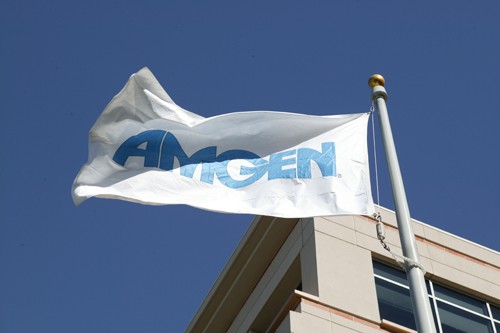
Amgen and Servier are creeping closer to a readout on their first-in-class chronic heart failure drug omecamtiv mecarbil, after their phase 3 study passed a second futility review.
The GALACTIC-HF trial’s data monitoring committee has recommended that the 8,200-patient study continue without any changes as it approaches a results readout by the end of the year. If positive, it will give a return on what has been 15 years of investment in the programme.
The interim data check was designed to identify if there was a low chance of a positive outcome, but also provided an opportunity for GALACTIC-HF to stop early if there was clear evidence the drug was superior to control.
The decision to continue therefore means the best-case scenario has also been ruled out at this stage, although analysts say the threshold for showing superiority was very high.
Originally developed by Cytokinetics, omecamtiv mecarbil is the first in a new class of drugs – dubbed cardiac myosin activators – that are designed to increase the duration of cardiac muscle contractility and improve cardiac muscle performance in heart failure.
GALACTIC-HF should be sufficient to support approval of omecamtiv mecarbil if the results are positive. Analysts at Cowen & Co have previously suggested that while omecamtiv is a high-risk programme, given that a lot of heart failure drugs have failed to show their worth in late-stage testing, if approved it could become a $2bn product.
It is one of just a few drugs in development for the treatment of chronic heart failure, which has seen few therapeutic advances in recent decades and is generally managed using generic therapies like ACE inhibitors, angiotensin II receptor antagonists and beta blockers.
The approvals of Novartis’ Entresto (sacubitril/valsartan) and Amgen/Servier’s Corlanor (ivabradine) in 2015 provided some new treatment options however, and there are signs that the flow of new drugs through the pipeline is increasing.
AstraZeneca is waiting for regulatory verdicts on its SGLT2 inhibitor Farxiga (dapagliflozin) as a treatment to reduce the risk of cardiovascular death or the worsening of heart failure in adults with reduced ejection fraction (HFrEF), with or without type 2 diabetes.
Farxiga was also the first drug in the class to claim approval in the US to reduce the chances of hospitalisations for heart failure in adults with type 2 diabetes and other cardiovascular risks last year.
Other drugs in the SGLT2 class – including Boehringer Ingelheim and Eli Lilly’s Jardiance (empagliflozin) – are also being tested in heart failure indications.
Meanwhile, other novel pipeline agents like Zensun’s Neucardin (recombinant human neuregulin-1 fragment) and Bayer/Merck & Co’s vericiguat have also hit the mark in clinical trials, raising the prospect of having multiple new therapies with different mechanisms of action.
GlobalData expects the SGLT2 inhibitors in particular to stimulate strong growth in the heart failure market, which it thinks will expand from $3.7bn in the eight major pharma markets in 2018 to $22.1bn in 2028.




